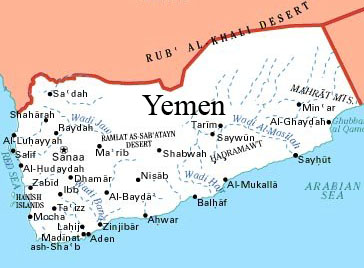Yemeni parliament elections postponement until 2011
 Sana'a, Yemen - Yemen's House of Deputies (Parliament) on Thursday approved a two-year postponement of the next parliamentary elections in order to provide time to reform the electoral system.
Sana'a, Yemen - Yemen's House of Deputies (Parliament) on Thursday approved a two-year postponement of the next parliamentary elections in order to provide time to reform the electoral system.
In an ad hoc session, 200 of the MPs who attended the debate voted for a constitutional amendment to prolong parliament's tenure for two more years, thus postponing elections until April 2011.
A final endorsement for the constitutional change is needed by the parliament within the next two months.
The legislative elections were originally scheduled for April 27, but the country's main opposition parties have threatened to boycott it, saying preparations for the vote were setting the stage for a rigged electoral process.
Parliament's approval of the delay comes after the ruling General People's Congress party (GPC) and opposition parties agreed on Wednesday on the two-year postponement.
Opposition sources said the agreement to delay the elections was mediated by a delegation from the European Union and the US National Democratic Institute.
Yemen's main opposition parties warned on February 12 that the ongoing preparations for the planned April elections would only produce a rigged vote rather than a free and fair election.
Leaders of the Joint Meeting Parties (JMP) bloc said the Supreme Commission for Elections (SCE) that was appointed by President Ali Abdullah Saleh last year was illegitimate, and demanded that the electoral law be amended.
The JMP, that groups the main opposition party Islah, the Yemeni Socialist Party, as well as four other smaller opposition parties, said the SCE's members are closely linked to Saleh and his GPC party.
The nine-member SCE has been preparing since last August to hold the elections on April 27, despite threats from the opposition to boycott the vote.
Last August, the JMP and GPC agreed on the amendments to the law in force since 2001, but GPC-dominated parliament rejected to vote these amendments and approved the old law.
The amendments were based on recommendations from a European Union delegation that assessed the September 2006 presidential elections and the Agreement of Principles signed by the GPC and opposition parties in June 2007. (dpa)